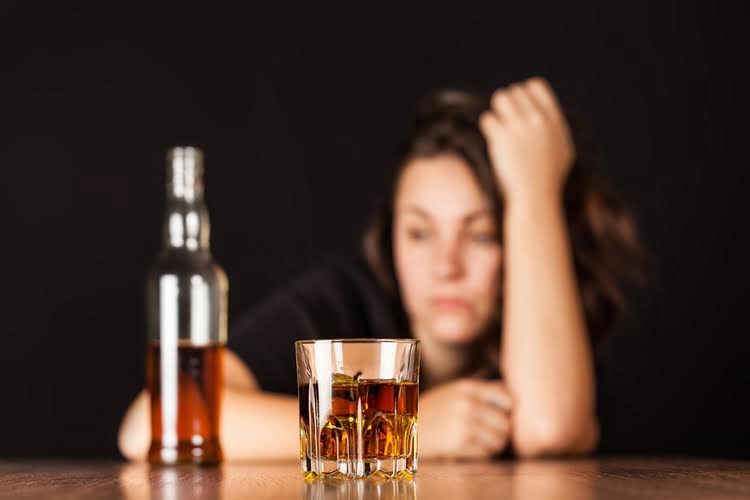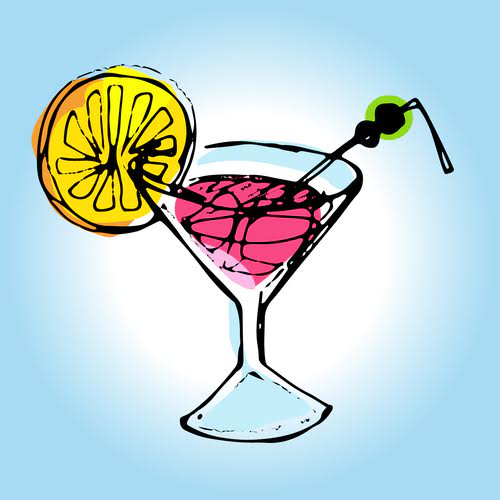Content
Her fields of interest include Asian languages and literature, Japanese translation, cooking, natural sciences, sex positivity, and mental health. In particular, she’s committed to helping decrease stigma around mental health issues. If you feel comfortable doing so, bring up your challenges to your primary healthcare provider. Finding a therapist can also be a great starting point if you aren’t comfortable opening up to your healthcare provider. When alcohol makes up part of your typical routine, drinking can become something of an automatic response, especially when you feel stressed or overwhelmed. Turner notes the importance of bringing along a trusted support person when attending events that involve alcohol.


You can also use the National Institute on Alcohol Abuse and Alcoholism’s Alcohol Treatment Navigator to search for a substance use treatment center near you. You might not have any issues after your short-term withdrawal goes away.
Ending Moderate Drinking Tied To Depression
When you quit drinking, you may experience sudden changes in emotions and even depression as your body adjusts to sobriety. However, depression after quitting drinking is only temporary. You shouldn’t let depression alter your pursuit of peace and contentment in early recovery. After all, enjoying your life sober is how your brain adapts to normal functioning again and starts producing more of your natural feel-good chemicals. One of the most popular and effective ways to combat depression after quitting drinking is to become actively involved in a 12-step program or self-help group. Every person’s recovery is different, so you should find the one that is the best fit for you.
So when you stop drinking it will feel like somebody close has died, then you will grieve which hurts like hell. You will go through effects of alcohol the stages of the cycle of grief, which will threaten your sobriety. I learnt that the most precarious stage is ‘bargaining’.
Top 6 Things To Know About Alcohol Withdrawal
Suggest social activities that don’t involve drinking. While you can’t shelter your loved one from situations where alcohol is present, you can avoid drinking with or around the person. When you spend time together, try to suggest activities that don’t involve alcohol. When someone spends a lot of time drinking , quitting or cutting down can leave a huge hole in their lives. Encourage your loved one to develop new hobbies and interests that don’t involve drinking. Tell your loved one about the worries you have regarding their drinking and the effects it’s having on their health, your relationship, and the family as a whole. Try to remain neutral and be compassionate rather than judge your loved one’s behavior or try to shame them.
Alcohol Abuse Is on the Rise. Here’s Why Doctors Fail to Treat It. – The New York Times
Alcohol Abuse Is on the Rise. Here’s Why Doctors Fail to Treat It..
Posted: Tue, 28 Sep 2021 07:00:00 GMT [source]
Your health and wellness is unique to you, and the products and services we review may not be right for your circumstances. We do not offer individual medical advice, diagnosis or treatment plans. For personal advice, please consult with a medical professional. If you’ve become dependent on alcohol, cutting it out of your life may produce withdrawal symptoms, such as a rapid heartbeat, high blood pressure, sweating and shaking. Psychological symptoms can include irritability, anxiety and restlessness.
Healthy Eating
And it turns out, I’m not the only person who received a mental health diagnosis when seeking treatment for alcohol use. Therapy is a core treatment element for both the depression and the alcohol problem. CBT provides a blueprint for making alcohol recovery tips changes in thoughts and action patterns. The coping skills learned in CBT helps clients reframe their thoughts, which leads to healthy actions. Detox lasts 5-7 days on average, with withdrawal symptoms and vital signs closely watched.
- Before you embark on this journey, you should know some important information on quitting alcohol cold turkey, and why it can be dangerous.
- In general, this means that someone who drinks heavily on a regular basis for a long time will suffer the most.
- If you have a mood disorder, it may become more noticeable when you stop drinking.
- Her fields of interest include Asian languages and literature, Japanese translation, cooking, natural sciences, sex positivity, and mental health.
- Treatment involves helping you realize how much your alcohol use is harming your life and the lives of those around you.
Disulfiram should only be used after you stop drinking. It causes a very bad reaction when you drink, which helps prevent you from drinking. While or after drinking, you get into situations that can cause you to get hurt, such as driving, using machinery, or having unsafe sex. Alcohol use is causing you to miss work or school, or you do not perform as well because of drinking. Wanted to, or tried to, cut down or stop drinking, but could not. Today’s biggest stories, from pop culture to politics—delivered straight to your inbox. The Joint Commission for the Accreditation of Healthcare Organizations evaluates quality of care provided by healthcare organizations.
Women At Betty Ford Center Share Their Struggles With Alcohol
With Go Sober For October getting more publicity every year, we wanted to share with you some of the typical alcohol withdrawal symptoms and side effects you may experience when you give up the booze. It is simply true that you may be enthralled by your decision to quit, delighted by the benefits you’ve gained, but not everyone sees things like that. This is especially true of people who have stopped drinking but are struggling to stay sober.


Others struggle and fight with the decision daily, never quite reaching the levels of peace and serenity they sought, but striving to get there. Many addiction experts suggest that by removing yourself from your typical environment, and your “triggers”, it becomes easier to get and stay sober. Talk with your provider if you or someone you know may have an alcohol problem. Drinking alcohol while you are pregnant can lead to severe birth defects in your baby. Drinking alcohol while you are breastfeeding can also cause problems for your baby.
Get Online Support
Your loved one’s recovery can be a long process, so you need to maintain a balance in your life. Making a major life change by giving up or cutting down on alcohol can create stress. Similarly, heavy alcohol use is often an unhealthy means of managing stress. You can help your loved one find healthier ways to reduce their stress level by encouraging them to exercise, confide in others, meditate, or adopt other relaxation practices. Help the person address the problems that led to them drinking. If your loved one drank because of boredom, anxiety, or loneliness, for example, those problems will still be present once they’re sober. Encourage the person to find healthier ways of coping with life’s problems and rebounding from setbacks without leaning on alcohol.
So is talk therapy with a mental health specialist who understands addiction and substance abuse. Creating ahealthy workout routine can help you combat the aches and pains that come with depression and alcohol withdrawal. You will need to begin small, as your body’s energy levels are depleted when you are starting to recover.
Quitting alcohol cold turkey without medical detox puts you at risk of relapse because of withdrawal symptoms. Severe alcohol withdrawal symptoms can be painful, and many people cannot resist the urge to drink to stop the discomfort. Additionally, many people relapse in early recovery because they want to self-medicate depression, anxiety, and uncomfortable feelings that come with PAWS.
Although depression after drinking can be reduced using antidepressant medications, there are other ways to treat depression as well. Similarly, long term abstinence from alcohol allows the brain to heal and for depression to reduce. Once you quit drinking, serotonin production can eventually return to normal. If you continue to struggle with depressive symptoms during recovery, you may require medication. Even moderate users or those who have been drinking in excess for a short period of time can experience mental fog, anxiety, and mood changes.
As the holidays approach, there’s less and less time to get “family ready.” Make a positive change that will make this year’s holidays even more special! If you or a loved one is having addiction issues, let us help. Alcohol artificially elevates dopamine levels in your brain in ways Thanksgiving dinner simply can’t. The reward system in the brain gets switched on and we start to feel amazing.
Seek immediate medical care or call your local emergency number if you or someone you know has an alcohol problem and develops severe confusion, seizures, or bleeding. Support groups help many people who are dealing with alcohol use. Talk to your provider about a support group that might be right for you. Naltrexone blocks pleasurable feelings of intoxication, which may help you cut back or stop drinking. Keep drinking, even though you know it is making a health problem caused by alcohol worse. But you can use these to your advantage, Chapple says, by viewing them as opportunities to come back stronger, by learning and understanding what you need to do differently in the future.
How do I convince someone that a partial solution to his chronic depression is to quit drinking?
— sherry (@librarydrudge) December 8, 2021





